Successful apprenticeship to life in global medical hardware installations
Armin Steiner has a background in engineering and business administration and is now the Global Medical Hardware Installations Director for Varian. Varian is a Siemens Healthineers company that develops, builds, and delivers innovative cancer care technologies and solutions.
Armin is based in Zug in Switzerland.
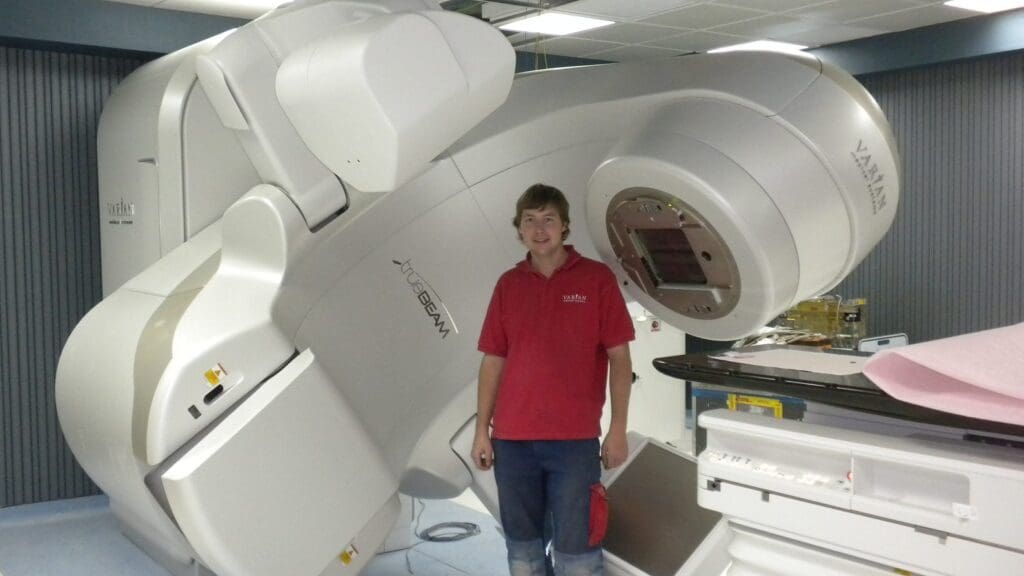

Armin Steiner, discusses the apprenticeship career path that led to him becoming Director Global Hardware Installations for Varian Medical Systems, a Siemens Healthineers company
Background and path to engineering
Could you give a brief description of your background and what led you to work in engineering?
It was probably the farmer’s life, which shaped my career initially. I grew up in Central Switzerland on a small farm in the mountains. We had about 14 acres of land and 14 cows. The land itself was steep, and you could not always use machinery to work in the fields.
However, being innovative was important to survive in the market environment.
In addition, my father did most of the repair work himself. Once he disassembled and reassembled a Schilter 1800 agricultural transporter right down to the last bolt.
Despite all of that, we stopped farming in the mid-90s as it was economically not sustainable anymore to run such a small farm.
Choosing an engineering apprenticeship
In Switzerland, everyone has to ask themselves the question at the age of about 14:
“What route will my future education path take?”
After completing primary school, the two main options are to either continue studying at a gymnasium (grammar school, high school) or to go for an apprenticeship. About two thirds of children choose the apprenticeship route, and so did I.
To get an idea of what type of apprenticeship may be the right one, there is the chance to do some trial apprenticeships in different fields, while still being at school. These trial apprenticeships usually last for 2-3 days each. I settled on electronics and got the opportunity to start an apprenticeship at Roche Diagnostics. This lasted for 4 years, and at the end of it, I was a certified electronics technician.
Flexibility of apprenticeships
People may ask the question as to whether you limit your further career, by choosing an apprenticeship over going to the gymnasium (grammar school, high school). The Swiss education system is quite flexible. It allows you, with an apprenticeship, to study at a technical university, if certain conditions are met. That’s what I did and completed a bachelor’s degree in electrical and electronic engineering.
This enabled me to start my professional career at Varian.
Apprenticeships in Switzerland
Before going into more details here, some additional information on the apprenticeship system. Whether a person chooses full-time study or an apprenticeship, is at the end down to the individual. People who complete the full-time study route tend to seek careers in fields which are more theoretical (psychology, law, business, teaching). However, they do also have all doors open into the technical world.
With an apprenticeship, the start of your career tends to be more technical, but still, you can move into other fields as well.
Advantages of apprenticeships
The biggest advantage of an apprenticeship in my view, is that at a young age you are directly involved with the real world, because you are working in a company. Plus, it provides you with hands-on experience.
I remember at university, there was a fellow student who had chosen to move to a technical university after his full-time study. This student was an ace at calculating difficult formulae, but he didn’t know what a diode looked like and so struggled in the labs big time.
Structure of an apprenticeship
With an apprenticeship, there is technical exposure in the company, but also some theoretical aspects are taught. Depending on the year of the apprenticeship, you will have between one and three days at college, and the other days in the company. Whilst at the beginning of the apprenticeship, more handholding is required, towards the latter part of the apprenticeship, you are often already being treated like a full member of a development project team. Being exposed to such responsibility at a young age will shape you for life.
Global Career at Varian in Medical Hardware
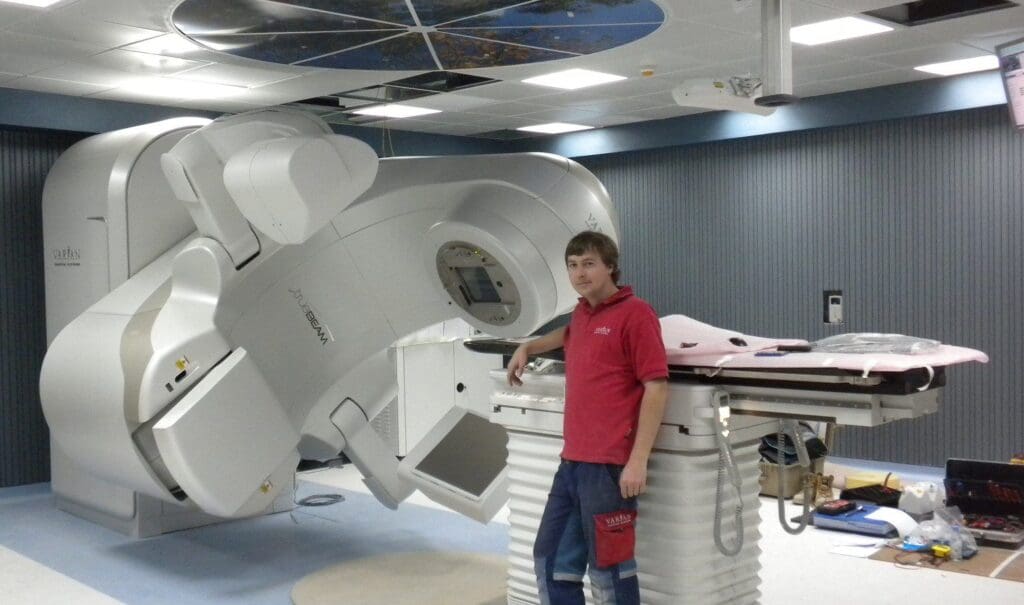

With Varian, I started off as a hardware installation engineer, installing our medical linear accelerators around the globe. Back when I started in 2008, the installation of a linear accelerator could take up to five weeks. After receiving some training on the equipment and tools, you’re mostly on your own, installing, aligning, and calibrating the equipment. You then demonstrate its accuracy to the customer prior to handing it over to the customer and their service team. It was an intense time, where I learned a lot. I hope that this experience is still being reflected in decisions I make today in my current position.
I then had the chance to move within the company to various management levels.
Growing a global team of medical installation engineers
When you are looking for a new member of your team, apart from a strong technical background, what are the three most important skills to have?
While I was directly responsible for a team of installation engineers, interviewing and hiring were part of my duties as well.
When looking for a new installation engineer, there were three aspects which were predominant when making the selection.
Independence
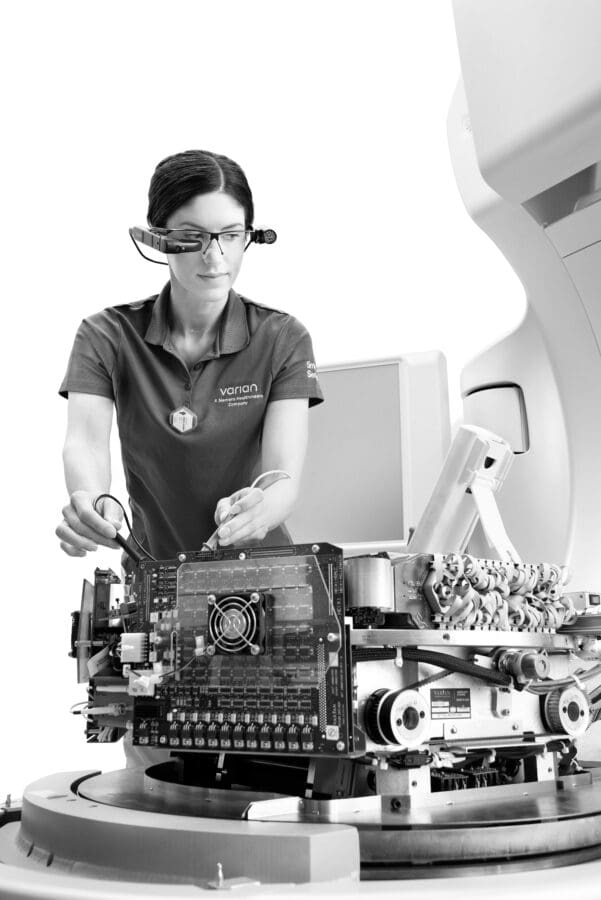

First and foremost, the ability to act and decide things independently. If an installation engineer is somewhere remote in a foreign country, the engineer must be able to deal not only with technical challenges, but also be able to communicate effectively with stakeholders in the hospital to get an installation moving and closed out successfully.
Willingness to travel
Secondly is the willingness to travel. We are not talking about travel to tourist hotspots. Wherever our equipment has been sold, no matter how remote the country and how small the town is, an installation engineer is required to get that equipment installed. Being able to manage being in situations, where you are the only English-speaking person for a couple weeks, is key.
Technical background
And of course, thirdly, a solid technical background, which includes mechanics, electronics, IT, and physics is required.
I’ve interviewed in many different countries. What I found over the years, was that people who started off with an apprenticeship, followed by studying at a technical university commonly checked more of the boxes, than people who had taken the purely theoretical route of study.
Of course, there are examples of colleagues, who have done theoretical study only, and do a tremendous job. So, I am happy to have those engineers on the team as well.
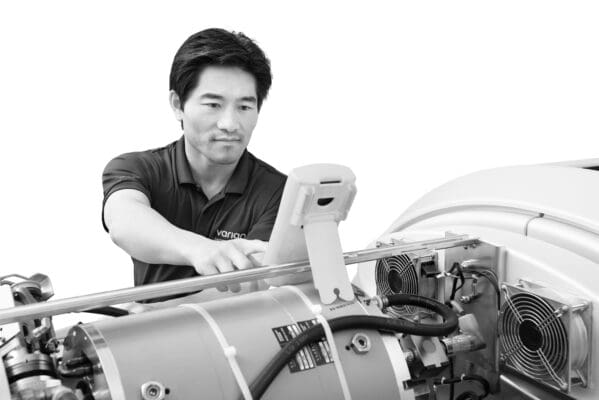

Managing a global team of medical hardware FSEs
When managing teams and individuals, I always try to listen first, and to get an understanding of what a certain decision may mean for the team or the individual. Having done the job as an installation engineer myself for some years does help me understand the feedback and concerns better, and value them accordingly. Whenever possible, I am seeking an informed decision. And yes, of course I am responsible for that decision and own it with all consequences.
There are sometimes situations, where I have the feeling that people reach out for opinions, but basically seek ways to share responsibility if something goes wrong. This approach is not healthy and can disrupt the trust of the team.
Trust and responsibility
As well as that, it is important to provide team members with some responsibility. Usually, this is repaid with good work in return and enables the engineer to raise their confidence level. I do not need to control exactly what an installation engineer is doing on site, as long as the result is positive, and rules and regulations are followed. This needs a certain level of trust, which can be fostered by enabling people to be responsible for their own actions. Open and honest communication does also help, if mistakes are made, and I try to be there to support the person as best as possible. If there is a breach of trust, this on the other hand must be addressed as quickly as possible, as such situations can lead to an unhealthy environment, if they linger around.
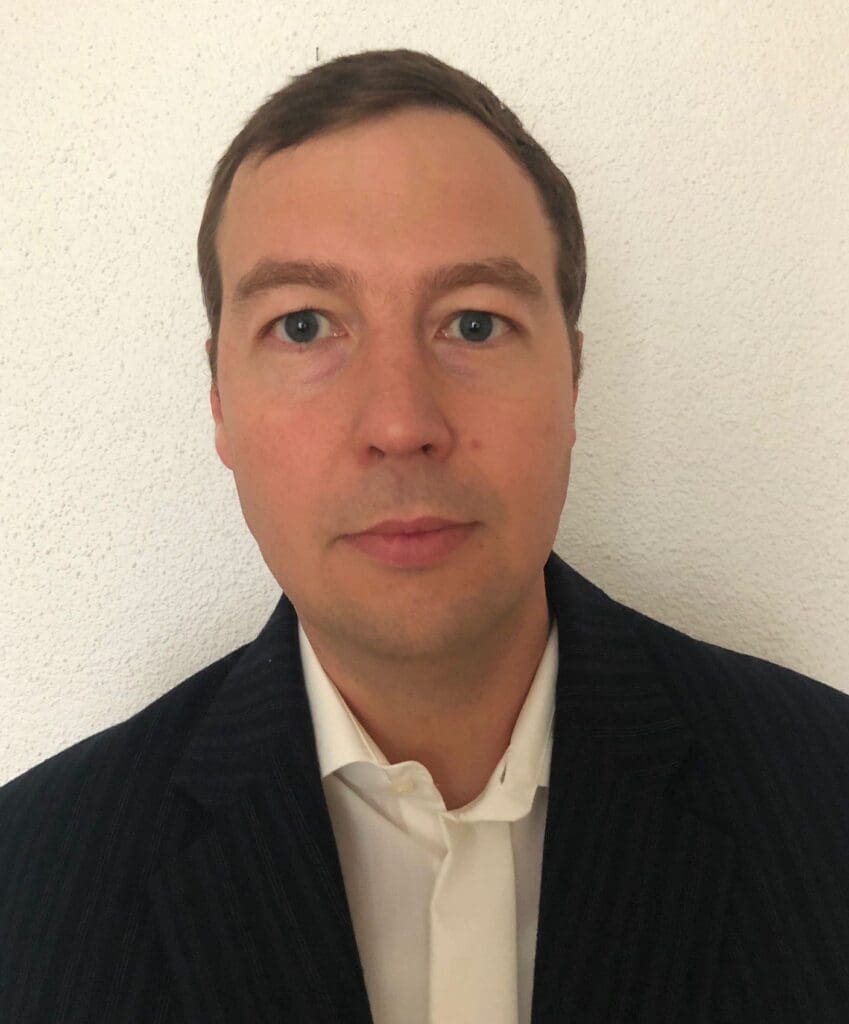

Conclusion to life in global medical hardware installations
Whether you choose an apprenticeship, or a more theoretical education path is up to you. An apprenticeship is not an obstacle to further career development but can even be beneficial. What is important, however, is that the individual is willing to learn, to grow and to show a high level of responsibility both during the apprenticeship and later on.
Further reading
Jacqueline Balian, Head of the Laboratory Technology Sector, GAMBICA.
Richard Baker discusses the benefits of recruiting radiotherapy equipment Technicians using Apprenticeships.


Responses